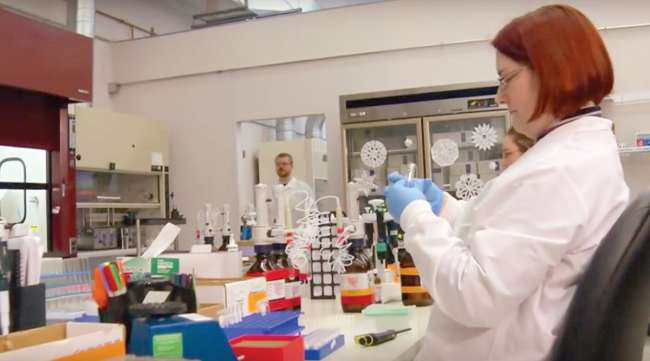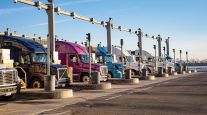Senior Reporter
FMCSA Drug Clearinghouse Records 46,000 Violations in First 10 Months

[Stay on top of transportation news: Get TTNews in your inbox.]
Nearly 46,000 driver drug-related violations have been recorded in the federal Drug and Alcohol Clearinghouse during its first 10 months of operation, but only about 4,400 drivers have completed their return-to-duty requirements.
The leading number of drug test failures — 24,000 — was for marijuana, said David Yessen, the Federal Motor Carrier Safety Administration’s compliance division chief. There were more than 6,650 failed tests for cocaine use, and 4,280 for amphetamines. Also included in the total were about 2,000 drug tests that were suspected attempts to cheat, Yessen said.
The Clearinghouse is a database containing information on commercial driver license holders’ drug and alcohol violations. Carriers, state driver licensing agencies and law enforcement officials use the Clearinghouse to check a driver’s violations.
Clearinghouse Monthly Report October 2020 by Transport Topics on Scribd
“The worrying number for me is the 38,000 drivers who had a violation that haven’t completed the return-to-duty process,” Yessen said. “That’s something that we will be keeping an eye on.”
Those are drivers who have been flagged for violations but have not completed their treatment or been hired back to operate in a safety-sensitive job.

Yessen
“I don’t ever want to say violations are healthy,” Yessen said. “But it’s not unexpected. From our perspective, it’s good to see that the system is working.”
He added, “This has been a sobering number because it does represent violations. Ideally, we want to see that at zero, but that’s not going to happen.”
Yessen gave the Clearinghouse update to trucking executives attending a Dec. 4 virtual presentation during American Trucking Associations’ Safety, Security and Human Resources National Conference.
So far, about 1.3 million drivers and 153,000 employers have registered on the Clearinghouse. “Ideally, that’s a number we would like to see go higher because we know that number [of carriers] is a lot higher than that,” Yessen said. About 53,000 of the employers registered have identified themselves as owner-operators, according to FMCSA.

Home | Video | Heroes' Photo Gallery
Saluting the men and women of the trucking industry who kept America's essential goods flowing during the coronavirus pandemic.
Heroes: Peter Lacoste | Susan Dawson | James Rogers | Reggie Barrows | Kevin Cooper | Cesar Quintana Moreno
Of the 2.3 million queries conducted, more than 1.1 million have been for pre-employment checks, with the remainder being limited queries, according to FMCSA. The agency is asking employers to make their required employee checks as soon as possible, rather than waiting until the last hours to get in before the Jan. 6 inquiry deadline. Besides making pre-employment checks, employers are required to make checks on the database annually to ensure none of their employees has any drug violations.
“We know we will have people waiting until the last minute,” Yessen said.

Widly
Dave Widly, CEO of DriverFacts Inc., said some of his company’s customers have yet to make limited queries of all their employees, as required by the Clearinghouse rule.
“Make sure you have all your valid releases from the drivers before you submit these queries,” said Widly, a member at the session’s panel. “You want to make sure that when you get them, you’re ready to go. Remember, the driver does not have to be registered.”
All employers who are subject to the regulations have to conduct the limited queries of their driving pool by Jan. 5, said Abigail Potter, ATA’s manager of safety and occupational health policy.
“I think the rush is going to be everyone will want to do it at the last minute,” Potter said. “The concern that we have is that the rush could tax the system. If so, we could see the system going down if so many people are using it all at once.”
Want more news? Listen to today's daily briefing:
Subscribe: Apple Podcasts | Spotify | Amazon Alexa | Google Assistant | More




